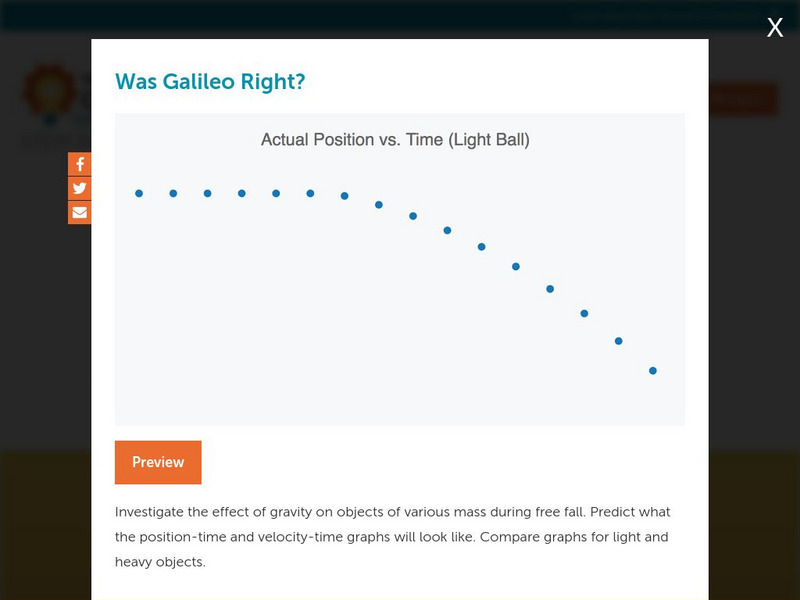Hi, what do you want to do?
Physics Aviary
Physics Aviary: Moment of Inertia of Pulley
This lab is designed to have students learn how the size, mass and mass distribution of a pulley influences the rate at which a mass attached to the pulley will accelerate. The pulley is frictionless and the string's mass is negligible.
Physics Aviary
Physics Aviary: Graphing Motion Lab 2
This lab was designed to generate some data that students can use when learning about two stage graphing motion. Students will track the motion of a dragster as it accelerates and then moves at a constant speed and then they will create...
Concord Consortium
Concord Consortium: Was Galileo Right?
Investigate the effect of gravity on objects of various mass during free fall. Predict what the position-time and velocity-time graphs will look like. Compare graphs for light and heavy objects.
CK-12 Foundation
Ck 12: Physics Simulation: Hot Air Balloon
[Free Registration/Login Required] Learn about Newton's 2nd Law - the relationship between force, mass, and acceleration for a hot air balloon using this interactive simulation. A PDF worksheet and a video tutorial are also available....
Other
Abp: P Ie Charts
This site from Accelerators and Beam Physics Group produces pertinent information regarding pie charts. Shows an example of a pie chart and breaks it up for easy learning.






